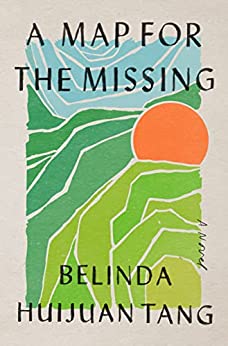More on this book
Community
Kindle Notes & Highlights
When he pronounced Yitian’s name, the syllables were filtered through Steven’s attempt to make them American, and the result was strange, like dough kneaded flat and then remade in an unfamiliar shape.
This understanding of obligation as the core of one’s being was their shared culture.
He’d been so confused the first time he’d heard that American phrase, living room, because all the real parts of living, of a life—the cooking, eating, sleeping—seemed to be pushed elsewhere behind yet another wall or door. The real living room, though they would never have called it that, was this room, in this old home.
It was true—inertia, not desire, had driven him to go to all of those doctor’s appointments, a sense that having a child was the way a life would progress.
because of a difference in the way they moved through and thought about the world.
There would be chatting but also long silences like the one he and his mother sat in now—observing, at this hour, the supremacy of the meal over all else. This, too, its own form of intimacy.
Many years later, in a forgotten corner of a university library, he would stumble upon an entry for liver cancer on the thin paper of a medical dictionary and find his grandfather’s final days described succinctly in bullet points, but at that moment, what had happened was still a mystery.
Even those illiterate men knew how powerful words could be. For hundreds of years, histories and stories had burned, new ones then created and written down only to be burned again. His mind was the only place where words could truly be kept safe. He wanted to pass them down to Yitian so that they could continue to exist in the mind of another. Like water poured between cups, so the tales would remain safe for the next generation.
She looked like one of the village women, with her heavy padded jacket and ruddy face, but when she spoke, it was with the crisp, defined accent of a Shanghainese, cutting off words in a high, sharp pitch at their endings.
The women hanging up wooden boards over their shops had been powerful people then, but now all the storefronts looked shabby and provincial. Even the smells of food wafting to him felt unclean rather than inviting.
He was more interested in peace than in his own pride, a quality she thought rare in men.
“Sometimes I feel seized to do what I’m afraid of.”
At intervals, he snuck a glance over at her, her lower lip caught between her teeth as she flipped between one page to another, and a gentle trust lapped over him. He wondered if she did the same when he wasn’t looking.
They laughed loudly, collapsing after they’d saved the notes. Then he looked over at her and wanted to postpone the date of the test forever. He could already feel the pang of loss of this moment, when hope had appeared and grown on its own, uncurtained yet by its resolution.
一田, a single field, the name his grandfather had picked for him. That was all he needed, the smallest gift from Heaven capable of sustaining life.
This was the worst part of a death: that the dead could not collect on the balance they were owed, that they left all their burden to the living.
It was amazing, he’d thought back then, that an unchanging property of an object wasn’t only what was there, but also what wasn’t. It meant that if you could define what was absent, create a map for the missing, that was also a way of knowing a thing.
I have rejected all her requests. For some reason, I feel attached to finding a love of my own.
She could see more clearly now that some things were not about want, but rather about the sacrifices one had to make to survive in this place, in this time. What her mother had been trying to tell her was that her dreams could no longer hold.
but she liked the small collection of her objects on the shelf above her bed, the sense that she owned a small piece of the world for herself.
Each opening had necessitated a closure enabling it, the hinge upon which the door had swung.
Time was a different feeling back then, stretching and endless, a truth of the world rather than something to work against and make efficient, as it was in America.
What she felt wasn’t desire for him, but rather a yearning for his very life.
If she were to reach down inside him, she would find his core to be soft and pliable.
They’d thought their hope and ambition was enough.
But each time he thought too much of the past life, she closed the lid of the box containing his memory and instead took him into her arms: her embrace an antidote against the missing. She gently pushed the memories away into negative space and held him apart from the absence.
I do not know what the difference between love and not-love is. When had I crossed that threshold, when had I relinquished?
He always thought they seemed as if they were just about to fall. How would that look—clumsy and hard, face-first into the yellow soil? No, it would be like this: the knees catching upon the ground before the fall, a moment of pleading in the snow before the body gave out.


